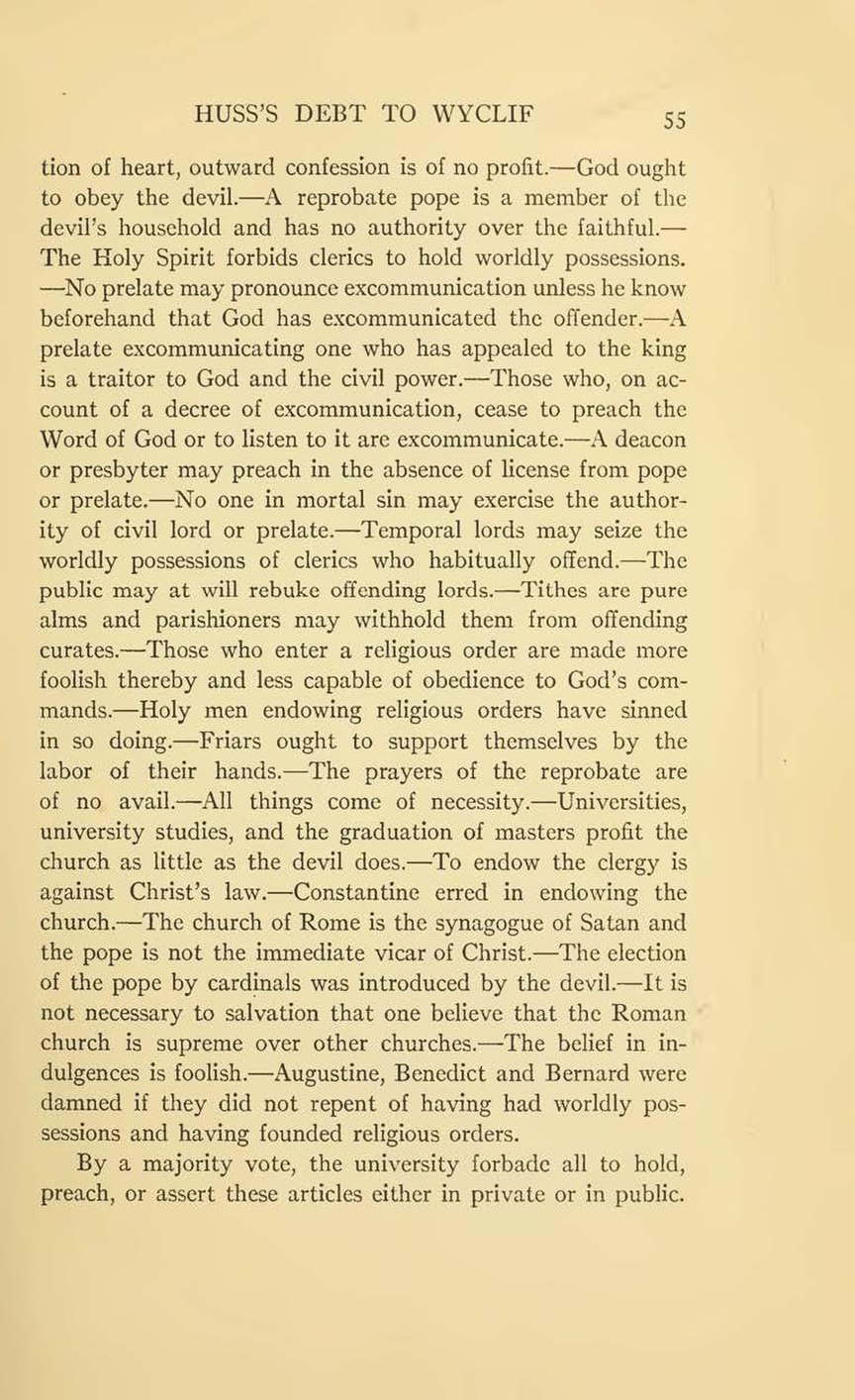tion of heart, outward confession is of no profit—God ought to obey the devil—A reprobate pope is a member of the devil’s household and has no authority over the faithful—The Holy Spirit forbids clerics to hold worldly possessions.—No prelate may pronounce excommunication unless he know beforehand that God has excommunicated the offender—A prelate excommunicating one who has appealed to the king is a traitor to God and the civil power—Those who, on account of a decree of excommunication, cease to preach the Word of God or to listen to it are excommunicate.—A deacon or presbyter may preach in the absence of license from pope or prelate—No one in mortal sin may exercise the authority of civil lord or prelate—Temporal lords may seize the worldly possessions of clerics who habitually offend.—The public may at will rebuke offending lords.—Tithes are pure alms and parishioners may withhold them from offending curates.—Those who enter a religious order are made more foolish thereby and less capable of obedience to God’s commands.—Holy men endowing religious orders have sinned in so doing.—Friars ought to support themselves by the labor of their hands.—The prayers of the reprobate are of no avail.—All things come of necessity.—Universities, university studies, and the graduation of masters profit the church as little as the devil does.—To endow the clergy is against Christ’s law.—Constantine erred in endowing the church.—The church of Rome is the synagogue of Satan and the pope is not the immediate vicar of Christ —The election of the pope by cardinals was introduced by the devil.—It is not necessary to salvation that one believe that the Roman church is supreme over other churches.—The belief in indulgences is foolish—Augustine, Benedict and Bernard were damned if they did not repent of having had worldly possessions and having founded religious orders.
By a majority vote, the university forbade all to hold, preach, or assert these articles either in private or in public.
